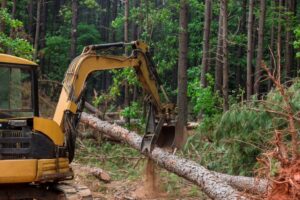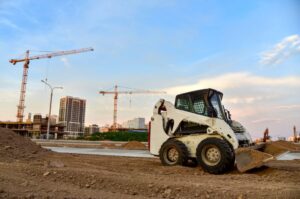
The terms “heavy equipment” and “industrial machinery” are often used interchangeably, but they refer to distinct categories of machinery with different characteristics and applications. Understanding the difference between heavy equipment and industrial machinery is essential for professionals in various industries. This article aims to unveil the distinction between these two categories, shedding light on their unique characteristics, applications, and roles in sectors such as construction, mining, manufacturing, and production.
Heavy Equipment: Powerhouses of Construction and Earthmoving
Heavy equipment refers to machinery specifically designed for construction, earthmoving, and related tasks. These machines are known for their robustness, durability, and capability to handle heavy loads and challenging terrain. Some common examples of heavy equipment include excavators, bulldozers, loaders, cranes, and graders.
Characteristics of Heavy Equipment:
- Size and Power: Heavy equipment is characterized by its large size and high power output, enabling it to handle demanding tasks. These machines are built to withstand rugged conditions and perform heavy-duty operations.
- Specialized Attachments: Heavy equipment often utilizes interchangeable attachments such as buckets, blades, and grapplers, allowing for versatility in various tasks. These attachments enhance the functionality and adaptability of the equipment to specific construction or earthmoving requirements.
- Mobility and Traction: Heavy equipment is designed with mobility and traction in mind. It is equipped with tracks or tires that provide stability and maneuverability across different terrains, including rough terrain, loose soil, and uneven surfaces.
Applications of Heavy Equipment:
Heavy equipment plays a vital role in construction and earthmoving projects, including:
- Excavation and site preparation
- Material handling and transportation
- Grading and leveling
- Demolition and debris removal
- Road construction and maintenance
- Mining and quarrying operations
- Landscaping and land development
Industrial Machinery: Powerhouses of Manufacturing and Production
Industrial machinery refers to a broad range of equipment used in manufacturing and production processes across various industries. Unlike heavy equipment, industrial machinery is not typically involved in construction or earthmoving tasks. Instead, it focuses on specific operations within factories, plants, and manufacturing facilities.
Characteristics of Industrial Machinery:
- Specialization: Industrial machinery is highly specialized for specific manufacturing or production processes. Each machine is designed to perform a particular task or series of tasks with precision and efficiency.
- Automation and Control Systems: Industrial machinery often incorporates automation and control systems to optimize production processes, ensure accuracy, and enhance productivity. These systems can include programmable logic controllers (PLCs), robotics, sensors, and computerized interfaces.
- Customization and Integration: Industrial machinery can be customized and integrated into production lines or systems to meet specific requirements. Machines may be designed to work in tandem with other machinery, creating a cohesive and efficient manufacturing or production workflow.
Applications of Industrial Machinery:
Industrial machinery serves a wide range of applications across multiple industries, including:
- Manufacturing and assembly processes
- Packaging and labeling
- Material handling and conveying
- Quality control and inspection
- Metalworking and fabrication
- Chemical and pharmaceutical production
- Food and beverage processing
- Textile and garment manufacturing
Conclusion
While heavy equipment and industrial machinery may share some similarities, they serve distinct purposes in different industries. Heavy equipment is primarily utilized in construction and earthmoving tasks, featuring size, power, and mobility to handle demanding conditions. On the other hand, industrial machinery focuses on specialized manufacturing and production processes, incorporating automation, control systems, and customization for optimal efficiency. By understanding the distinction between heavy equipment and industrial machinery, professionals can effectively utilize these machines in their respective fields, ensuring smooth operations, productivity, and success in their industry-specific tasks.



